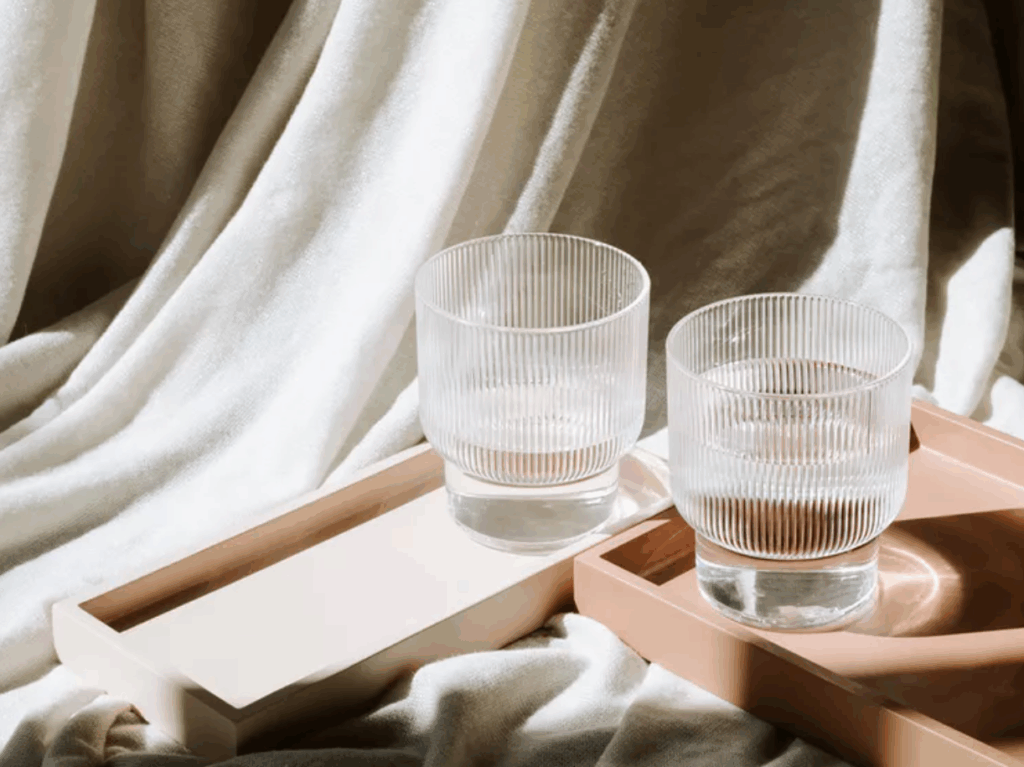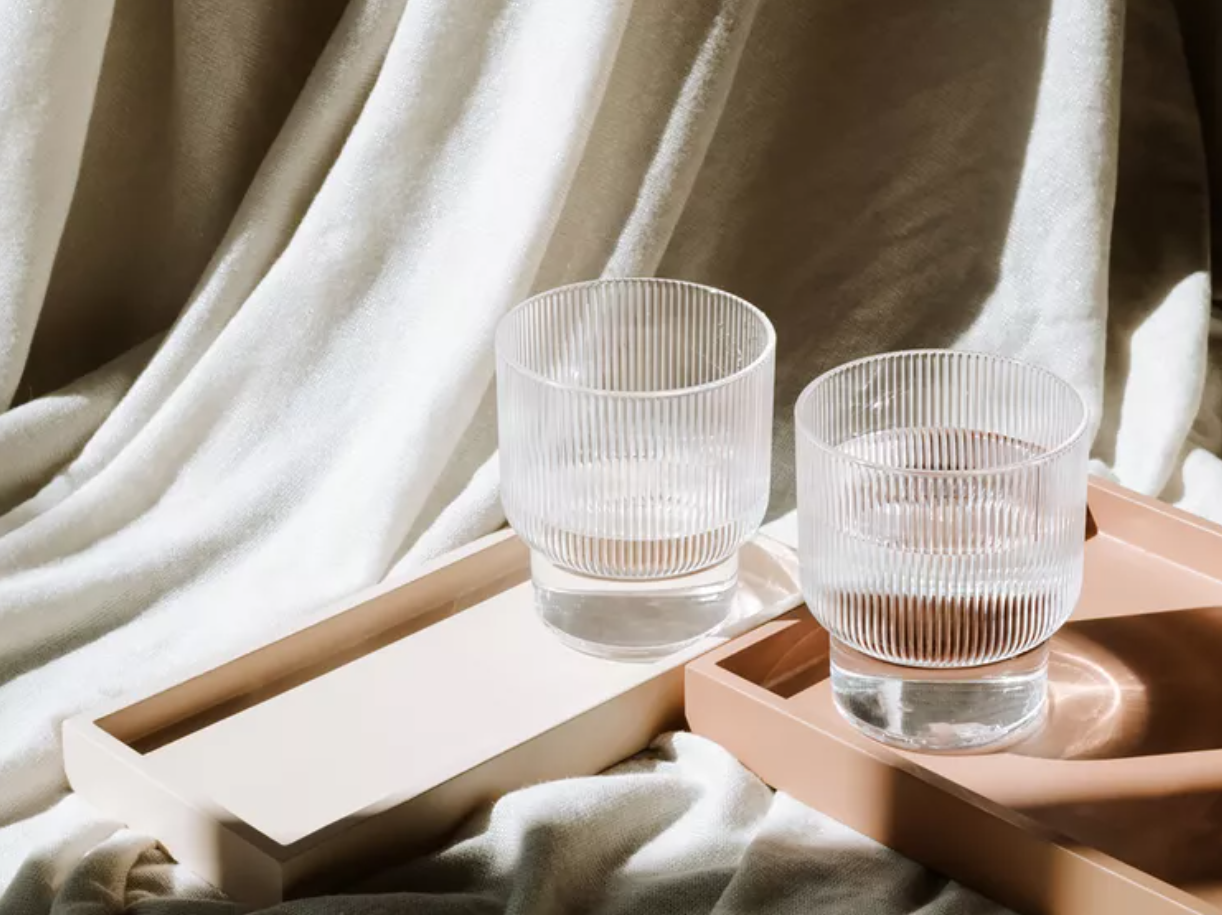Hydration has become its own kind of wellness trend. From the cult of Stanley cups to influencers lugging around gallon-size jugs, drinking water has never been more fashionable. We all know the basics—hydration boosts energy, keeps skin glowing, and may even help headaches. But do you really need to down a full gallon of water every single day?
We tapped dermatologists, fitness experts, and nutritionists to break down what happens when you drink a gallon of water daily—and whether your body actually needs it.

Do You Actually Need That Much?
Here’s the truth: a gallon of water a day isn’t a magic number for everyone.
“While striving for a gallon a day is great, water needs depend on the person,” says board-certified dermatologist Margarita Lolis, MD. “According to the Mayo Clinic, men typically need around 3.7 liters (just about a gallon), while women average closer to 2.7 liters.”
Translation: yes, hydration matters—but the right amount is personal.
1. Your Metabolism Could Get a Boost
Drinking water doesn’t just quench thirst—it might also rev up calorie burn. Fitness coach Heidi Powell explains that when you drink about 16 ounces of water, your metabolism can spike up to 30% for the next half hour. That’s thanks to an enzyme called lipase, which needs water to kickstart fat metabolism. The takeaway? Staying hydrated may help with weight management.
2. Your Workouts May Feel Easier
Water is fuel for your cells. “Hydration helps your body function at the cellular level, which directly impacts exercise performance,” says trainer Kara Griffin. Endurance sports like running are especially sensitive to dehydration, but even strength workouts can suffer if you’re not hydrated enough.
3. But Too Much at Once Can Cause Cramps
Here’s the caveat: guzzling a full bottle right before a workout can backfire. “Chugging water right before exercise can lead to cramps and sluggishness,” Griffin warns. Instead, sip gradually—one glass about 20–30 minutes before moving, then small sips as you go.
4. You’ll Store Energy More Efficiently
Water also plays a surprising role in energy storage. “You need water to bond with glycogen in your muscles to create an energy reserve called ATP,” says fitness expert Drew Logan. Without enough water, your muscles can’t store energy as effectively, leaving you drained. Think of hydration as charging your internal battery.
5. Your Skin Might Look Plumper and Glowier
“Dehydrated skin often looks dull, flaky, and wrinkled,” Dr. Lolis explains. Consistent water intake helps skin cells stay hydrated, leading to smoother texture and fewer fine lines.
6. Your Eyes Could Look Less Puffy
Dark circles and puffiness? Sometimes it’s dehydration talking. “The under-eye area is very delicate, and without enough hydration, circulation slows,” says Dr. Lolis. Esthetician Renée Rouleau adds that dehydration—especially when paired with salty foods—can leave you noticeably puffier by morning. A gallon of water won’t erase sleepless nights, but steady hydration can help your eyes look brighter.
7. Your Diet May Naturally Clean Up
A hidden perk of drinking more water: it crowds out sugary sodas and overly processed snacks. “Hydration not only reduces cravings, but eating more water-rich foods like fruits and vegetables naturally supports a cleaner diet,” Griffin notes. Since dehydration can mimic hunger, drinking water can also help curb unnecessary snacking.
8. Digestion Gets Smoother
Constipation is one of the clearest signs you’re not drinking enough water. Keeping hydration steady helps move things along and supports overall gut health.
9. Your Brain Will Thank You
That mid-afternoon slump? It might be dehydration. Even mild fluid loss has been linked to poor concentration, irritability, fatigue, and anxiety. Keeping water on hand—whether it’s sparkling, infused with citrus, or just plain—helps keep your brain sharp.
10. Headaches Could Happen Less Often
If you’re prone to headaches, dehydration may be a sneaky trigger. Studies show that upping water intake can help reduce both frequency and severity of headaches.
The Bottom Line
Yes, drinking water is good for you—no surprise there. But do you need to drink an entire gallon every single day? Not necessarily. Your ideal hydration depends on your body, activity level, and even the foods you eat.
Instead of fixating on a gallon, focus on steady hydration throughout the day. Pair that with a nutrient-rich diet, regular movement, and smart skincare, and you’ll get the glow and energy you’re looking for—no gallon jug required.

Leave a Reply